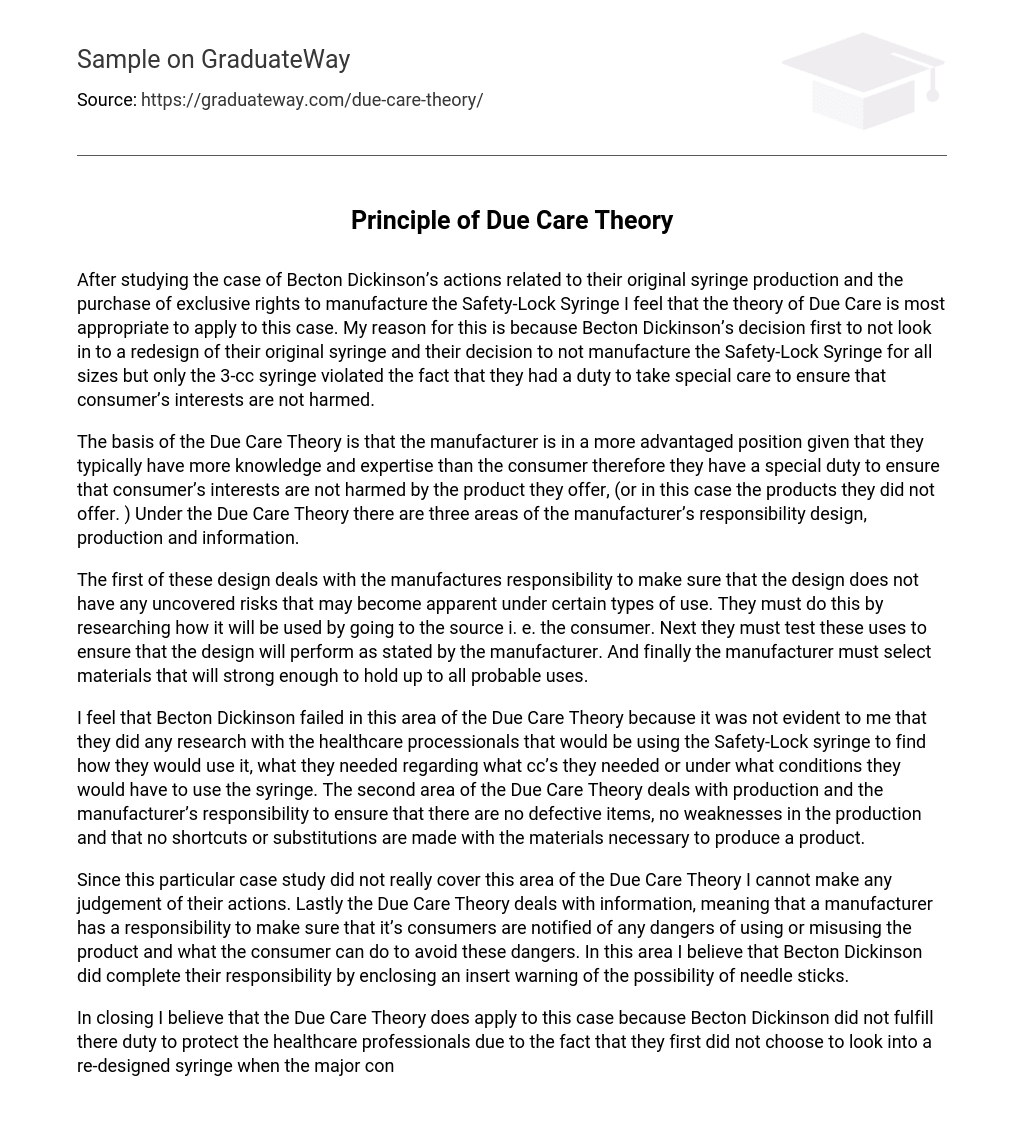After studying the case of Becton Dickinson’s actions related to their original syringe production and the purchase of exclusive rights to manufacture the Safety-Lock Syringe I feel that the theory of Due Care is most appropriate to apply to this case. My reason for this is because Becton Dickinson’s decision first to not look in to a redesign of their original syringe and their decision to not manufacture the Safety-Lock Syringe for all sizes but only the 3-cc syringe violated the fact that they had a duty to take special care to ensure that consumer’s interests are not harmed.
The basis of the Due Care Theory is that the manufacturer is in a more advantaged position given that they typically have more knowledge and expertise than the consumer therefore they have a special duty to ensure that consumer’s interests are not harmed by the product they offer, (or in this case the products they did not offer. ) Under the Due Care Theory there are three areas of the manufacturer’s responsibility design, production and information.
The first of these design deals with the manufactures responsibility to make sure that the design does not have any uncovered risks that may become apparent under certain types of use. They must do this by researching how it will be used by going to the source i. e. the consumer. Next they must test these uses to ensure that the design will perform as stated by the manufacturer. And finally the manufacturer must select materials that will strong enough to hold up to all probable uses.
I feel that Becton Dickinson failed in this area of the Due Care Theory because it was not evident to me that they did any research with the healthcare processionals that would be using the Safety-Lock syringe to find how they would use it, what they needed regarding what cc’s they needed or under what conditions they would have to use the syringe. The second area of the Due Care Theory deals with production and the manufacturer’s responsibility to ensure that there are no defective items, no weaknesses in the production and that no shortcuts or substitutions are made with the materials necessary to produce a product.
Since this particular case study did not really cover this area of the Due Care Theory I cannot make any judgement of their actions. Lastly the Due Care Theory deals with information, meaning that a manufacturer has a responsibility to make sure that it’s consumers are notified of any dangers of using or misusing the product and what the consumer can do to avoid these dangers. In this area I believe that Becton Dickinson did complete their responsibility by enclosing an insert warning of the possibility of needle sticks.
In closing I believe that the Due Care Theory does apply to this case because Becton Dickinson did not fulfill there duty to protect the healthcare professionals due to the fact that they first did not choose to look into a re-designed syringe when the major concern over needle sticks arose. And secondly because when they decided to buy exclusive manufacturing rights to a better design they chose no to offer it on all syringes needed by their consumer, the healthcare workers.





